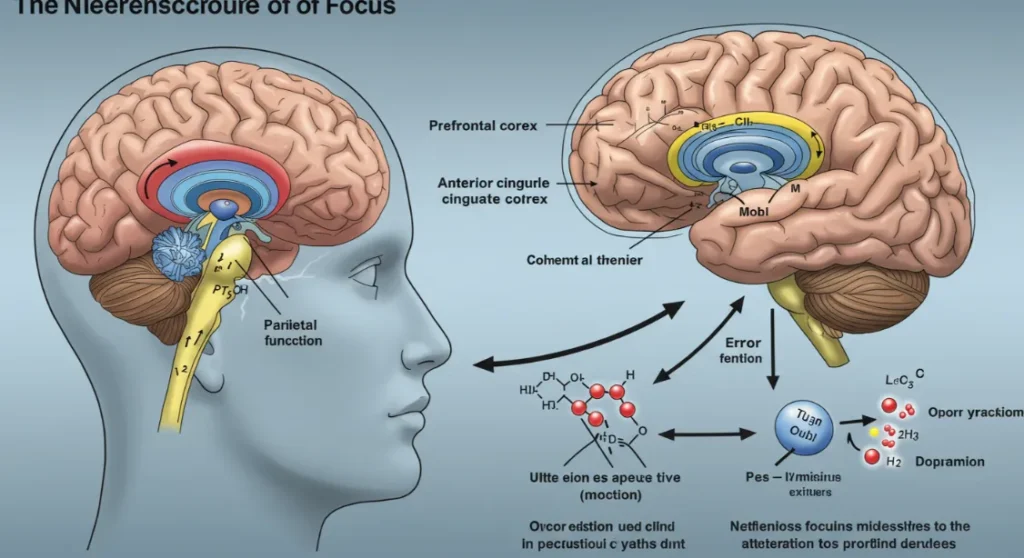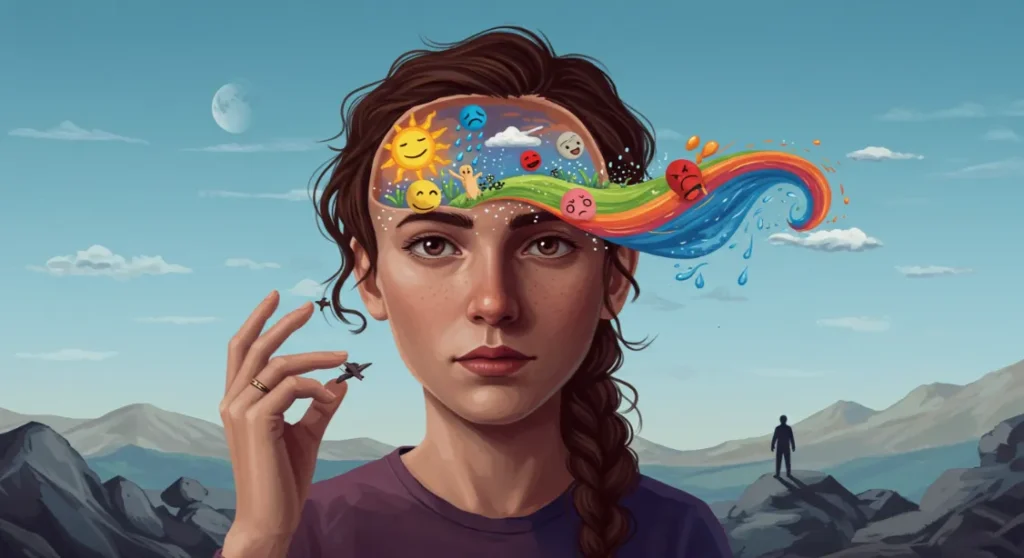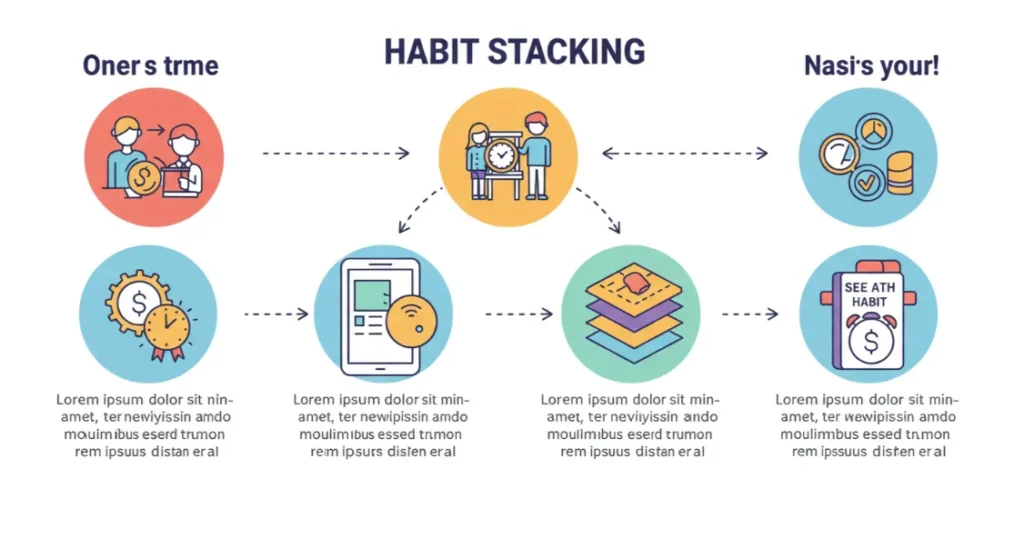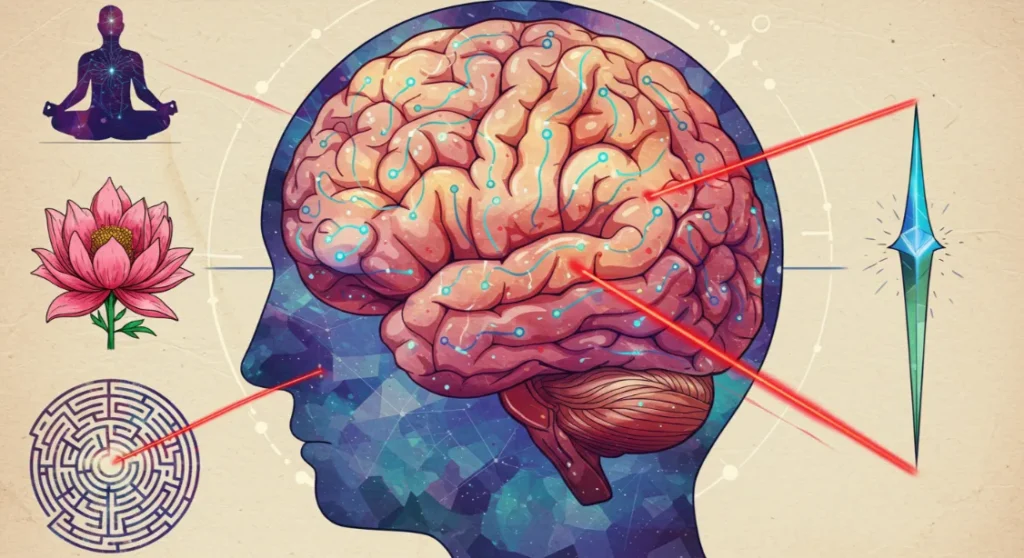Ever wondered why you feel so foggy after a poor night’s sleep? Or why your mood takes a nosedive when you’re sleep-deprived? The connection between sleep and mental health is more profound than most people realize.
Research shows that getting just one hour less sleep than you need can decrease your cognitive performance by up to 32%. That’s like trying to function with a third of your brain tied behind your back!
Let’s explore this fascinating relationship and discover how optimizing your sleep can transform your mental wellbeing and performance.
Key Takeaways
- Quality sleep directly impacts cognitive function, emotional regulation, and mental health
- Poor sleep increases the risk of anxiety, depression, and impaired decision-making
- Consistent sleep patterns are more important than total sleep duration
- Sleep deprivation negatively affects memory consolidation and learning abilities
- Implementing proper sleep hygiene can significantly improve mental health outcomes
- Even small improvements in sleep quality can yield substantial benefits for mental wellbeing
The Science Behind Sleep and Mental Health

When you sleep, your brain isn’t taking a break—it’s actually hard at work. During sleep, your brain processes emotions, consolidates memories, and clears out toxins that accumulate throughout the day. It’s like a mental janitor, sweeping away the day’s cognitive debris and organizing important information.
This nighttime maintenance is crucial for your mental health. Without adequate sleep, this essential housekeeping doesn’t get completed, leaving your brain cluttered and inefficient.
How Sleep Affects Your Brain
Sleep influences nearly every type of tissue and system in your body, from the brain and heart to your immune system. But its impact on your brain is particularly profound:
Memory Consolidation: During deep sleep, your brain transfers information from short-term to long-term memory. When you stay on track with goals, quality sleep helps cement the day’s learning and progress.
Emotional Processing: REM sleep helps process emotional experiences, which is why disrupted sleep often leads to emotional volatility. Practicing mindfulness for productivity can help manage these emotions when sleep is suboptimal.
Toxin Clearance: Your brain has a drainage system that activates during sleep, flushing out waste products that accumulate during waking hours. Without this cleanup, these toxins can contribute to cognitive decline and mental health issues.
The Mental Health-Sleep Connection
The relationship between sleep and mental health is bidirectional—poor sleep can worsen mental health conditions, and mental health issues can disrupt sleep. Understanding the science of stress helps explain why this happens:
| Mental Health Condition | Sleep Impact | Brain Areas Affected |
|---|---|---|
| Anxiety | Difficulty falling asleep, racing thoughts | Amygdala, prefrontal cortex |
| Depression | Early morning waking, excessive sleep | Hippocampus, prefrontal cortex |
| ADHD | Delayed sleep onset, restless sleep | Prefrontal cortex, basal ganglia |
| Bipolar Disorder | Reduced need for sleep during mania | Limbic system, prefrontal cortex |
Sleep Deprivation and Mental Health Risks
When you consistently miss out on quality sleep, your mental health takes a significant hit. The effects go far beyond just feeling tired—they can fundamentally alter how your brain functions.
Cognitive Impairment
Sleep deprivation severely impacts your cognitive abilities. After just one night of poor sleep, you might notice:
Reduced attention span and concentration
Impaired decision-making abilities
Decreased creativity and problem-solving skills
Slower reaction times (similar to being intoxicated)
These effects make it harder to focus on one task and maintain productivity throughout the day.
Emotional Dysregulation

Without adequate sleep, your emotional regulation center—the amygdala—becomes hyperactive while the prefrontal cortex (responsible for rational thinking) becomes less effective. This imbalance leads to:
Increased irritability and mood swings
Heightened stress reactivity
Greater emotional vulnerability
Reduced ability to cope with challenges
Learning to manage work stress becomes significantly more difficult when you’re sleep-deprived.
Long-term Mental Health Consequences
Chronic sleep deprivation is associated with increased risk of developing serious mental health conditions:
People with insomnia are 10 times more likely to develop depression
Sleep problems often precede anxiety disorders
Poor sleep quality is linked to increased suicidal thoughts
Sleep disturbances can trigger manic episodes in bipolar disorder
Developing healthy sleep hygiene practices is essential for preventing these long-term consequences.
Optimizing Sleep for Better Mental Health
Now that we understand the crucial relationship between sleep and mental health, let’s explore practical strategies to improve your sleep quality.
Create a Sleep-Conducive Environment
Your sleep environment plays a major role in how well you sleep:
Keep your bedroom cool (65-68°F/18-20°C), dark, and quiet
Invest in a comfortable mattress and pillows
Remove electronic devices or use night mode to reduce blue light
Consider using white noise or earplugs if your environment is noisy
Creating the right environment helps signal to your brain that it’s time to wind down and prepare for sleep.
Establish Consistent Sleep Routines

Your body thrives on consistency. Establishing regular sleep patterns helps regulate your circadian rhythm:
Go to bed and wake up at the same time every day (even on weekends)
Create a relaxing pre-sleep routine to signal your brain it’s time to wind down
Avoid naps after 3 PM
Get morning sunlight to help set your body clock
Consistent routines support your body’s natural sleep-wake cycle, making it easier to fall asleep and wake up refreshed. Implementing a morning routine for success can further reinforce these healthy patterns.
Mind Your Daytime Habits
What you do during the day significantly impacts your sleep quality:
Limit caffeine after noon and alcohol before bed
Exercise regularly, but not within 2-3 hours of bedtime
Manage stress through techniques like meditation for productivity
Expose yourself to natural light during the day
Practice procrastination and time management to reduce bedtime worry
These habits create the foundation for better sleep, which in turn supports improved mental health.
The Role of Sleep in Mental Resilience

Quality sleep doesn’t just prevent mental health problems—it actively builds resilience against stress and emotional challenges.
Sleep as a Stress Buffer
Well-rested individuals show greater emotional resilience when faced with stressors. This is because adequate sleep:
Helps maintain optimal prefrontal cortex function for rational thinking
Prevents amygdala hyperactivity that leads to emotional overreactions
Supports proper hormone regulation, including stress hormones
Enhances cognitive flexibility to adapt to challenges
Developing a growth mindset combined with good sleep habits creates a powerful foundation for stress resilience.
Sleep and Emotional Intelligence
Your emotional intelligence—the ability to recognize, understand, and manage emotions—is significantly impacted by sleep quality:
Better sleep improves empathy and social awareness
Well-rested individuals show greater emotional control
Sleep enhances your ability to read others’ emotional cues
Quality sleep supports better judgment in emotional situations
These emotional intelligence skills are crucial for both personal relationships and professional success.
Practical Sleep Improvement Strategies
Ready to transform your sleep and mental health? Here are actionable strategies to implement tonight:
Cognitive Techniques for Better Sleep
Your thoughts and mental approach to sleep can make a big difference:
Practice gentle mindfulness present moment awareness as you prepare for sleep
Use relaxation techniques like progressive muscle relaxation
Try visualization exercises imagining peaceful, calming scenes
Challenge catastrophic thinking about the consequences of poor sleep
These mental approaches can help quiet an overactive mind and prepare for restful sleep.
Technology and Sleep
While technology often disrupts sleep, it can also be used strategically to improve it:
Use sleep tracking apps to understand your sleep patterns
Try white noise or nature sound apps if you’re sensitive to environmental noise
Consider light therapy devices if you struggle with seasonal sleep changes
Implement a “digital sunset” by stopping screen use 1-2 hours before bed
Learning to stay focused online during the day can also help reduce evening screen time that disrupts sleep.
When to Seek Professional Help
While self-help strategies work for many sleep issues, sometimes professional help is needed:
Persistent insomnia lasting more than three weeks
Symptoms of sleep disorders like sleep apnea or restless leg syndrome
Sleep problems accompanied by severe anxiety or depression
Sleep issues that don’t respond to lifestyle changes
A sleep specialist or mental health professional can provide targeted interventions for complex sleep-mental health connections.
Sleep’s Impact on Specific Mental Health Conditions
Different mental health conditions have unique relationships with sleep. Understanding these connections can help you develop targeted strategies:
Sleep and Anxiety
Anxiety and sleep problems often create a vicious cycle—anxiety makes it harder to sleep, and sleep deprivation increases anxiety. Breaking this cycle requires:
Addressing worry thoughts that keep you awake
Creating a buffer zone between stimulating activities and bedtime
Learning how to be unstoppable despite anxiety through proper sleep
Using relaxation techniques specifically targeted at nighttime anxiety
Sleep and Depression
Depression and sleep have a complex relationship, with sleep disturbances often appearing before other depression symptoms:
Morning light exposure can help with both sleep and mood regulation
Consistent wake times are especially important with depression
Physical activity improves both sleep quality and depressive symptoms
Social connection during the day promotes better sleep and mood
Practicing daily affirmations can also support both sleep and mood when dealing with depression.
The Future of Sleep and Mental Health
Research in sleep science continues to evolve, offering exciting new insights into optimizing mental health through better sleep:
Personalized sleep recommendations based on genetic profiles
Advanced sleep tracking technologies providing more accurate data
Targeted interventions for specific sleep-mental health connections
Integration of sleep optimization into standard mental health treatments
Staying informed about these developments can help you continue to refine your approach to sleep and mental wellbeing.
Conclusion: Prioritizing Sleep for Mental Wellbeing
The connection between sleep and mental health is undeniable. Quality sleep isn’t a luxury—it’s a fundamental pillar of mental wellbeing and peak performance.
By implementing the strategies outlined in this article, you can transform your sleep quality and experience significant improvements in your mental health, cognitive function, and emotional resilience.
Remember that small, consistent improvements in your sleep habits can yield substantial benefits. Start tonight by choosing one sleep-enhancing strategy to implement, and gradually build your ideal sleep routine from there.
Your brain will thank you with improved focus, better mood regulation, and enhanced mental clarity—all essential components for thriving in today’s demanding world.
Resources:
- National Sleep Foundation: www.sleepfoundation.org
- American Academy of Sleep Medicine: www.aasm.org
- Sleep for Kids: Teaching Kids the Importance of Sleep: www.sleepforkids.org
- Harvard Health Sleep Resources: www.health.harvard.edu/topics/sleep
- CDC Sleep and Sleep Disorders: www.cdc.gov/sleep
- Sleep Research Society: www.sleepresearchsociety.org